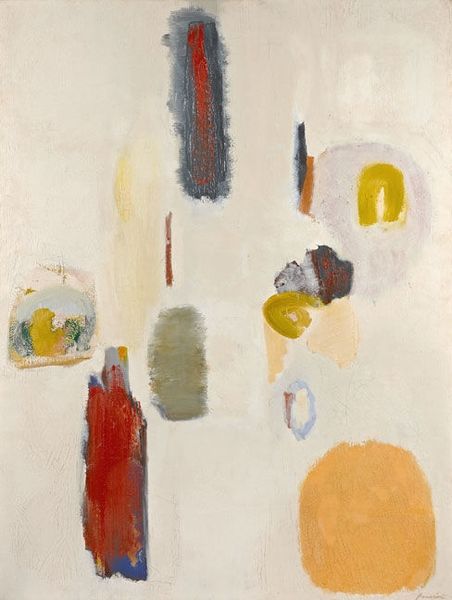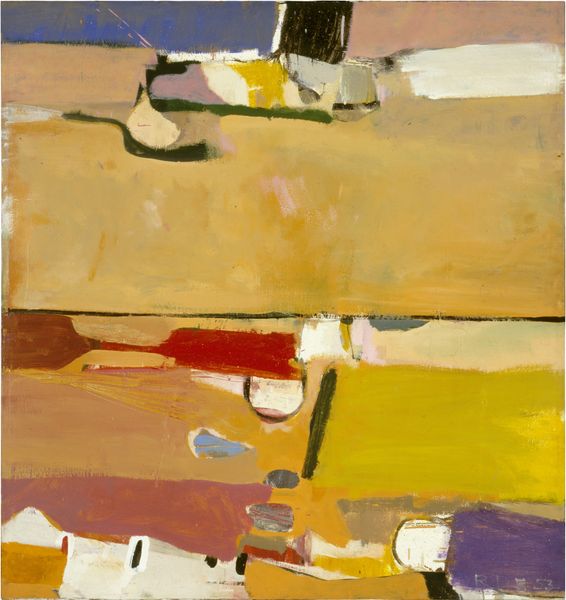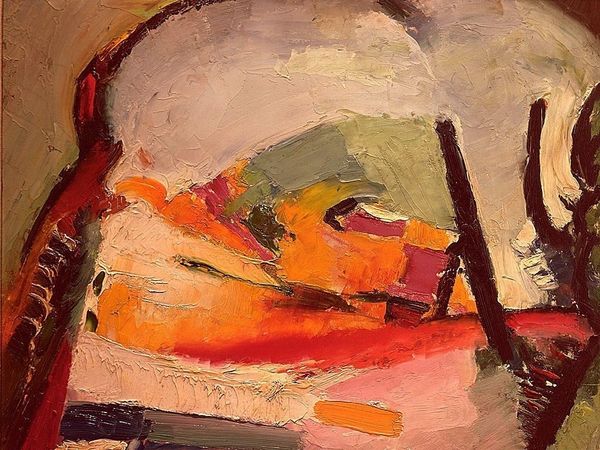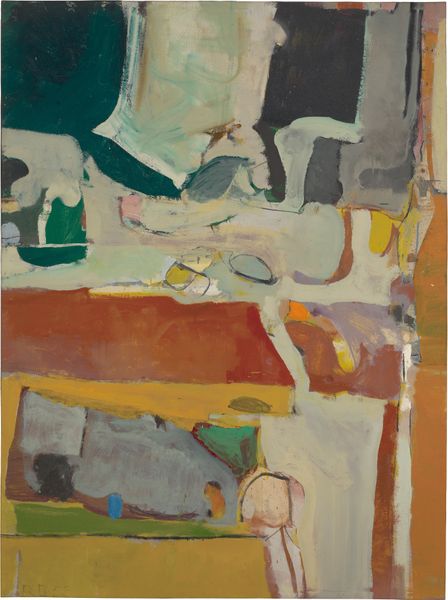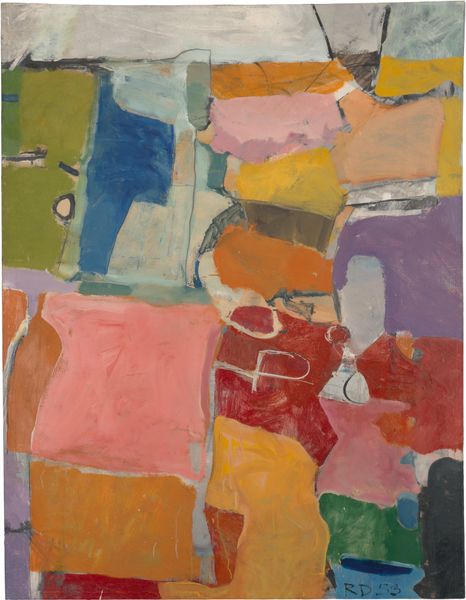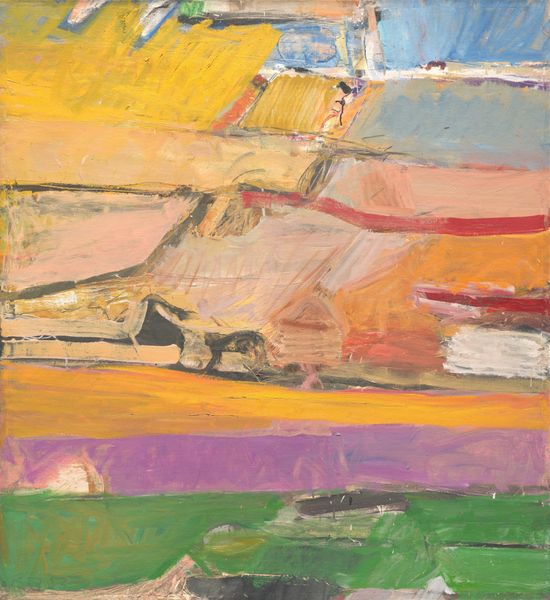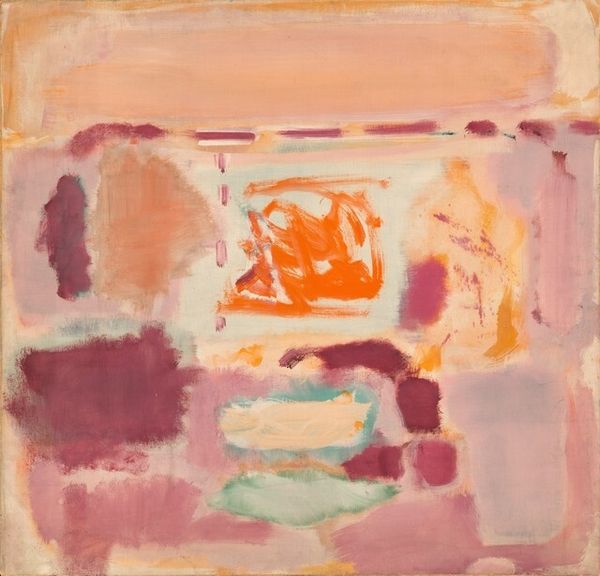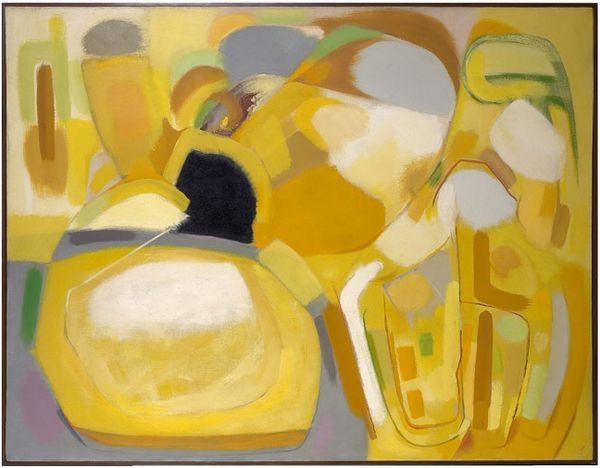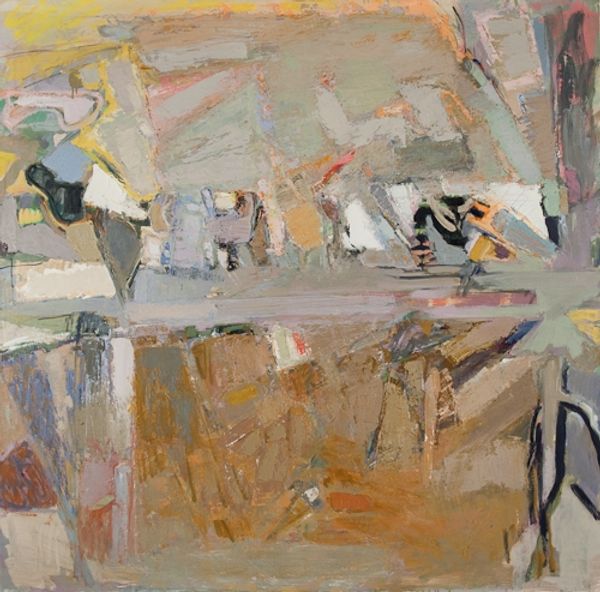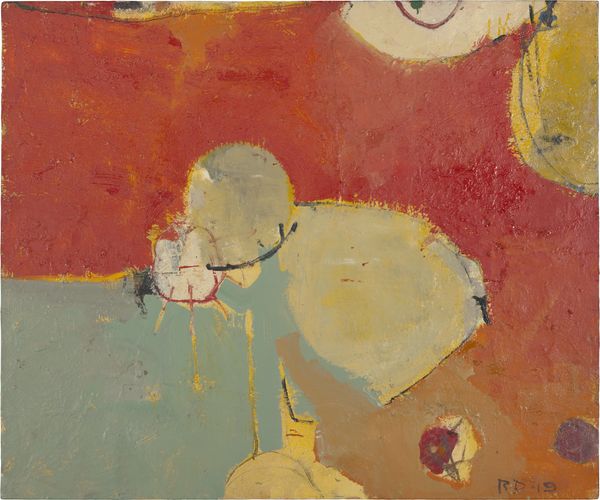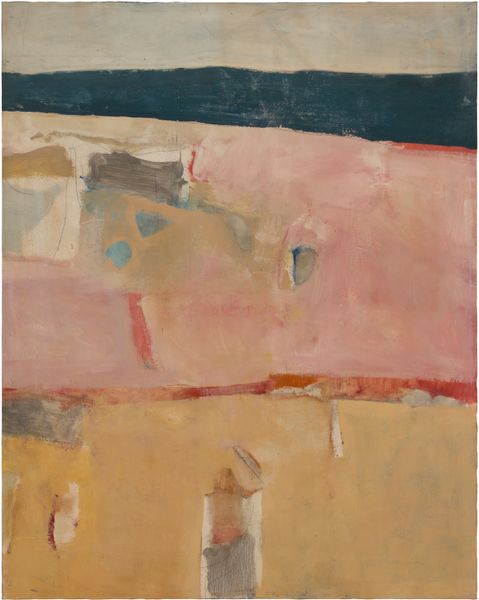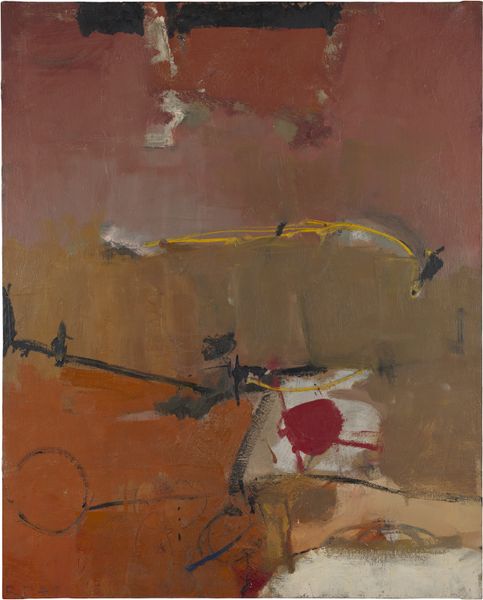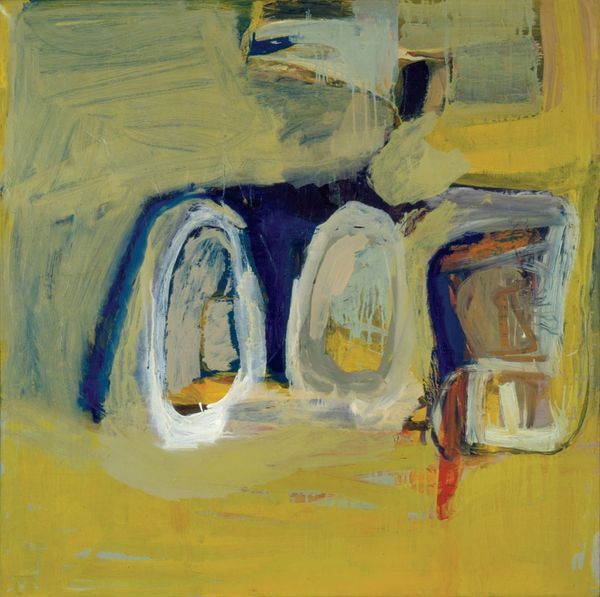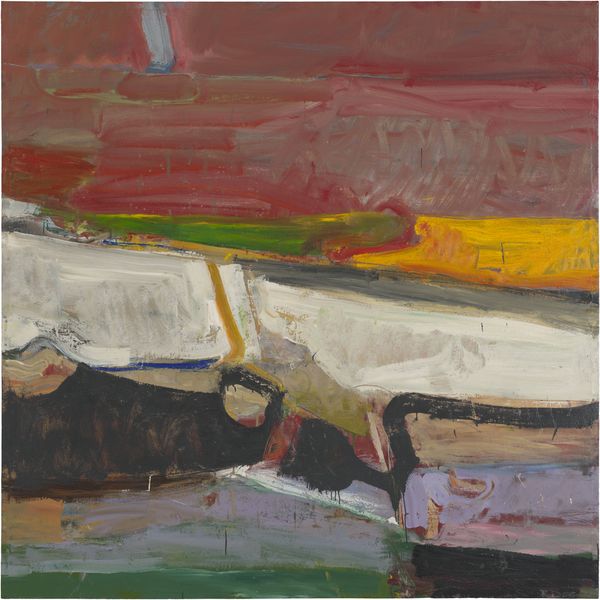
Dimensions: support: 864 x 1118 mm
Copyright: © Elizabeth Blackadder | CC-BY-NC-ND 4.0 DEED, Photo: Tate
Editor: So, this is Elizabeth Blackadder's "Still Life with Pomegranates" from the Tate Collection. It's striking how the everyday objects almost dissolve into abstract forms. What historical context shapes our view of a piece like this? Curator: Blackadder’s work emerged in a period where still life was being re-evaluated, moving away from purely representational roles. How do you think the museum’s display of this work impacts its meaning for the public? Editor: That’s a great question! Maybe placing it within a collection of modern British art elevates it, signaling its importance beyond just a simple arrangement of objects. Curator: Exactly. And considering the art market, the visibility granted by the Tate reinforces its cultural and economic value. Blackadder's positioning challenges traditional hierarchies within art history itself. Editor: It’s fascinating to consider how institutions actively shape our understanding and appreciation. Thanks for sharing your insights! Curator: My pleasure. It highlights the power structures inherent in art and its interpretation.
Comments
tate 9 months ago
⋮
http://www.tate.org.uk/art/artworks/blackadder-still-life-with-pomegranates-t00859
Join the conversation
Join millions of artists and users on Artera today and experience the ultimate creative platform.
tate 9 months ago
⋮
A regular theme in Blackadder's work during the 1960s was the still life. Some favourite domestic objects appeared several times, such as a dark coffee pot, small painted boxes, patterned cloths and richly coloured oriental rugs bought on her travels. These are laid out in compositions full of spatial ambiguity. Blackadder chose the objects for their colour and shape but equally they have a special personal meaning for her. She is fascinated by exotic plants and fruits and especially pomegranates 'which as well as being visually exciting with their jewel-like seeds always seemed to me to be particularly poetic with mythic connections.'This painting was chosen by Maureen Duffy. Gallery label, September 2004
